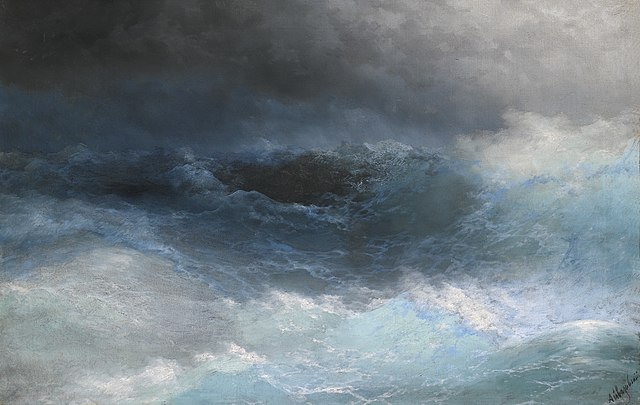|
Wake up to a "jig" in an ode to the Baroque gigue dance in Dietrich Buxtehude's "Fugue in C Major." A song of unity and connection in "Blessed Be the Tie That Binds," rung by the Plymouth Ringers, greets you after that morning cup of joe. A joyful toccata quasi-improvisation on the hymn tune "Lasst uns erfreuen" by Brenda Portman brings us to the virtual coffee hour (more coffee!) See you at the annual meeting.
0 Comments
 By lumaxart - 3D Full Spectrum Unity Holding Hands Concept, CC BY-SA 2.0, https://commons.wikimedia.org/w/index.php?curid=3590833 By lumaxart - 3D Full Spectrum Unity Holding Hands Concept, CC BY-SA 2.0, https://commons.wikimedia.org/w/index.php?curid=3590833 Following the Light in this Epiphany season and New Year—in unity and hope. Celebrated American composer Ned Rorem wrote for the organ sporadically throughout his decades-long career with several works becoming staples of the repertoire. One such collection is A Quaker Reader (1976), inspired by the ethos of his Quaker upbringing. As Rorem so thoughtfully describes: With the present suite my intention has been to meld, finally and practically, my nominal religion with my craft. Since no Song is used—no actual musicalizing of words—each piece is headed with an epigraph from Friends' writings, many of which, in their urge toward pacifism as solution, extol absolute quiet and absolute light. The music represents a blaze of silence. From the dying words of one James Naylor in 1660 comes the title of the Prelude this Sunday morning: "There is a spirit that delights to do no evil..." This fourth movement of the eleven part suite bestows upon the listener a sense of calm and peace. Simplicity. The words were uttered by a Quaker who was fatally wounded in a mugging and yet still clung to hope for a better world. From Ned Rorem's Organbook III (1989), the "Fanfare" closes the service in a triumphant flurry. The composer describes the object of his three organ books of the same year as "simplicity." He further expounds: Though I flatter myself that I compose with an experienced flair for the organ, I still hear it as an amateur. The timbre of all organ music, including my own, remains mysterious to me: I never know quite what to listen for. This ambiguity is at once irksome and thrilling, and will keep me forever intrigued. At 97, Ned Rorem has largely retired from composition with his last organ work written just a few short years ago in 2014: "Recalling Nadia." The Musical Offering will be presented by flutist Aaron McGrew in an arrangement of the Scottish tune "The Summons." Come join us for next week's 7:00 p.m. Wednesday Vespers service on January 27 with guitarist Bill DeMarco and songs of tranquil Americana. Jesus calls us, o'er the tumult of our life's wild, restless sea. Day by day that voice still calls us, saying, "Christian, follow me." - Cecil Alexander, 1852; alt. William Bolcom's four volume collection of Gospel Preludes is an eclectic compendium of blues, gospel, jazz, art music, and the avant garde composed ever so idiomatically for the organ. His jazz-tinged setting of the hymn "Jesus Calls Us; O'er the Tumult" begins the service, invoking both modernity and the Baroque in its traditional chorale prelude form.
"Stopping By Woods on a Snowy Evening" (1922) by Robert Frost is one of English literature's most well-known poems. It speaks to perseverance on the road ahead buoyed by one's sense of hope and responsibility. Our Staff Singer Blair Carpenter presents her own setting of this famous text during the Musical Offering To close, a noble and elegant arrangement of the hymn "Christ Is Made the Sure Foundation" by Paul Manz in the most British manner—indubitably. I also invite you to join us for the 7:00 p.m. Vespers service this Wednesday, January 20 for songs of hope, unity, and prayer on this decisive day in our nation. Violinist Harmony Tucker joins. What ruler wades through murky streams and bows beneath the wave, Ignoring how the world esteems the powerful and brave? Water, River, Spirit, Grace, sweep over me, sweep over me! Recarve the depths your fingers traced in sculpting me.  CC BY-SA 2.5, https://commons.wikimedia.org/w/index.php?curid=439193 CC BY-SA 2.5, https://commons.wikimedia.org/w/index.php?curid=439193 These words from Sunday's opening hymn by Thomas Troeger address the humble spirit of Jesus' baptism in the Jordan — an act seemingly below the stature of a would-be Messiah. But glory dwelled within this moment and carries into our lives daily if we choose to receive it. Susan Palo Cherwien's insightful baptismal text "O Blessed Spring" is commonly paired with the English tune "O Waly Waly." For the prelude, we'll instead hear the alternate tune "Berglund" by Lutheran pastor and cantor Robert Buckley Farlee in a two-part setting by James Biery. The first section assigns the cantus firmus to the pedal with a delicate manual motif over top contrasting with the flowing tranquil mood of the closing section. Members of the Plymouth Ringers ring in the new year with my arrangement of the Renaissance tune "In Thee Is Gladness." I set the lively and dance-like melody in the Lydian mode, a tonality composers have used to signify Light (in the Epiphany season or otherwise!). The tell-tale raised fourth scale degree offers a sense of wonder and awe in this carol for the new year: "In thee is gladness amid all sadness, Jesus, sunshine of my heart!" To close Sunday's worship, an exuberant work also from the Renaissance entitled "Glorificamus" by John Redford, organist and composer at St. Paul's Cathedral, London during the reign of King Henry VIII (circa 1525.) "Glorificamus" was described in the E. Power Biggs-edited anthology "Treasury of Early Organ Music" as "precious evidence of the advancement of organ music in England .... freeing this kind of music from the yoke of vocal polyphony." |
Details
|


 RSS Feed
RSS Feed